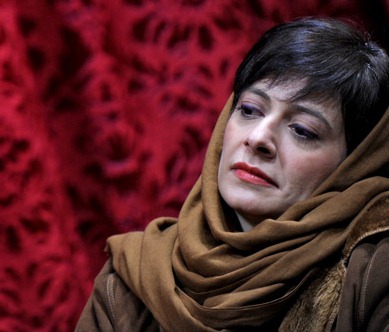 Iranian novelist Mahsa Moheb-AIi turned to literature as an escape from the restrictions imposed by the Islamic regime. �At the time there was no entertaining programme on television nor good movies. The only place left to help my imagination was literature,� Ms Moheb-Ali says.
Iranian novelist Mahsa Moheb-AIi turned to literature as an escape from the restrictions imposed by the Islamic regime. �At the time there was no entertaining programme on television nor good movies. The only place left to help my imagination was literature,� Ms Moheb-Ali says.She was not alone. Creative writing flourished after the Islamic revolution in 1979 with the number of female novelists rising from a mere handful to almost 400. Now the 40-year-old author of four novels is at the vanguard of an emerging generation of female writers, tackling social issues and relationships in the conservative Islamic country.
But in recent months, the readers who used to flock to Karim Khan street in central Tehran to buy Farsi books by her and others for between 50,000 and 200,000 rials have dwindled. �Sanctions, the fall of the rial?.?.?.?have pushed up the price of paper,� one publisher, who declined to be named, told the Financial Times. For Tehran�s middle class, books have become an optional extra. Books that once had a print run of 3,000 are now lucky to have one of 500. Falling sales and the�ever tighter hold of the censors�� some publishing houses have been banned � mean authors such as Ms Moheb-Ali struggle to get into print.
While she has a publisher for her new book�Old City�, which tells the tale of a young woman who is open about her sexuality, she doubts she will get the official permit she needs to publish the book.
�That completely depends on the country�s political situation,� she says. �If the current trend continues, the answer [from the government] would be no.�
Ms Moheb Ali speaks from experience. Two of her books have already been banned � one,�Don�t Worry, after its 11th printing for reasons that have never been explained to her. The novel features a young female drug addict, a character seen to represent an irresponsible and spoiled younger generation.
Her trajectory � from music student to controversial novelist � is one that is mirrored by many other Iranian novelists.
One consequence of the strict rules introduced after the 1979 revolution, was that traditional parents, who might once have been reluctant to allow their daughters to mix more widely, agreed to send them to university, confident that the new rules offered them security. Some then turned to literature to express themselves.
�Many of these women picked up pens to write short stories or novels for the first time to express themselves even though many of them had been housewives,� says Pooneh Nedai, editor of the literary Shokaran magazine.
Fattaneh Haj Seyed Javadi led the way. Her 1998 novel�Drunkard Morning�� about a woman who rebels against her aristocratic background and marries a carpenter but then leaves him because of his abusive behaviour � was a turning point in Iran�s post-revolution popular fiction.
The books that followed focused on the challenges of urban life, relationships and failed marriages, topics that resonate with Iranians far more than traditional tomes about rural life, poverty, ethics and loyalty. �The works of the new generation of women writers are literally rich while their social themes appeal to ordinary youngsters,� says Behzad Abdi, a poet.
Others, such as Fahimeh Rahimi � described as Iran�s Danielle Steel � have attracted teenage readers with simple stories about love and pride.
Despite economic hardships and the harsh reality of life under censorship, writers such as Ms Moheb-Ali have not given up.
There is still an audience for her books, she says. She just needs to find the best way of reaching them.
�My hope is the internet,� said Ms Moheb Ali. �My readers are internet-savvy youth, preferring to download books and read them on their mobile phones.�
By Financial Times
The Iran Project is not responsible for the content of quoted articles.











